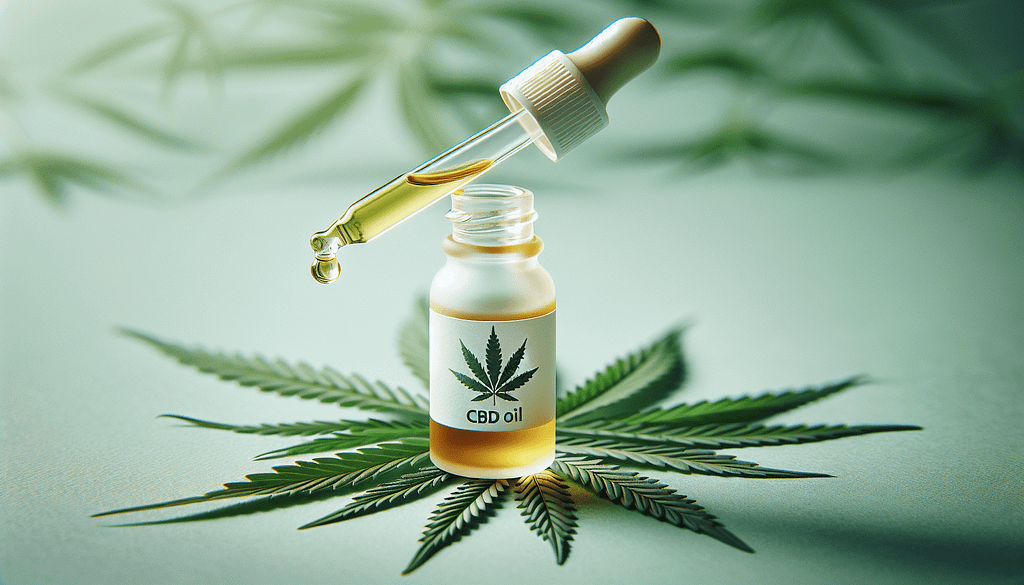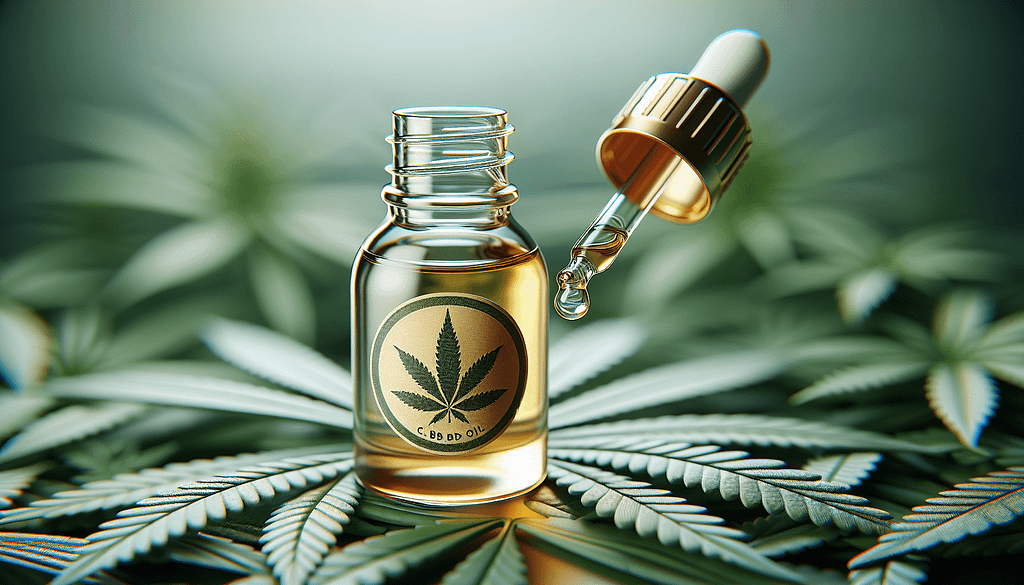As an Amazon Associate I earn from qualifying purchases.
Explore the potential side effects of CBD oil, from common symptoms like dry mouth to serious considerations like liver enzyme alterations. Stay informed and consult your doctor.
Exploring the Potential Side Effects of CBD Oil
If you’ve been hearing a lot about CBD oil lately, you’re not alone. This natural extract from the cannabis plant has taken the wellness world by storm, and for a good reason. People are exploring its potential benefits for everything from anxiety and chronic pain to skin health and overall wellbeing. However, as with any supplement, it’s crucial to understand not just the benefits but also the potential side effects. This guide will walk you through what you need to know about the side effects of CBD oil.
What is CBD Oil?
CBD, short for cannabidiol, is one of over a hundred compounds found in the cannabis plant. Unlike THC, the compound that gives marijuana its psychoactive properties, CBD is non-psychoactive, meaning it won’t get you high. CBD oil is typically derived from hemp plants and used in various products, including tinctures, capsules, edibles, and skincare items.
CBD is believed to interact with your body’s endocannabinoid system (ECS), which plays a role in regulating various functions such as mood, sleep, appetite, and immune response. This interaction is what provides many of the potential health benefits associated with CBD oil.
Common Side Effects of CBD Oil
Dry Mouth
One of the more common side effects of CBD oil is dry mouth, also known as “cottonmouth.” This occurs because cannabinoids can inhibit the production of saliva. If you find yourself experiencing this, staying hydrated by drinking plenty of water can help alleviate the dryness.
Diarrhea
Another side effect to be aware of is diarrhea. This is particularly prevalent in those who are new to using CBD oil or who take it in high doses. Starting with a low dose and gradually increasing it can help mitigate this side effect.
Drowsiness
While one of CBD’s well-known benefits is its potential to aid in sleep, it can also cause drowsiness for some people. If you’re taking CBD oil during the day, this side effect could interfere with your activities. In such cases, it might be wise to adjust your dosage or consider using it only at night.
Changes in Appetite
CBD oil can also affect your appetite. While some users report an increase in appetite, others experience a decrease. This side effect is usually mild and temporary, but it’s something to keep in mind, particularly if you’re taking CBD for weight management or digestive issues.
Low Blood Pressure
CBD has the potential to lower blood pressure, which can be beneficial for those dealing with hypertension. However, this effect can also cause dizziness, especially if you stand up too quickly from a sitting or lying position. It’s important to monitor your blood pressure regularly, particularly if you have any underlying health conditions.

Less Common Side Effects
Liver Enzyme Alterations
CBD oil can influence the way your liver metabolizes certain medications. This can result in altered liver enzymes, which could potentially lead to liver issues down the line. If you’re taking medication, it’s crucial to discuss CBD oil with your healthcare provider to ensure it won’t interfere with your current treatment plan.
Nausea and Vomiting
Though not as common, some users report nausea and vomiting as side effects of CBD oil. If you start experiencing these symptoms, it could be worth reducing your dose or discussing other options with your healthcare provider.
Mood Changes
CBD is well-known for its potential to relieve symptoms of anxiety and depression. However, for some individuals, it can cause mood changes. Whether it lifts your spirits or brings about feelings of irritability or sadness, being aware of these potential changes can help you manage them more effectively.
Fatigue
Some people experience increased levels of fatigue after taking CBD oil. This could be beneficial for those looking to treat sleep disorders, but it might be problematic if you have a busy daily schedule. Adjusting your dosage may help alleviate this side effect.
Factors Influencing Side Effects
Quality of the Product
The quality of the CBD oil you use can significantly influence the likelihood and severity of side effects. Poor-quality products may contain contaminants or lower levels of CBD than advertised. Always purchase your CBD oil from reputable sources.
Dosage
The dosage of CBD oil you take plays a substantial role in the side effects you may experience. Starting with a low dose and gradually increasing it will allow your body to adjust, reducing the risk of adverse reactions.
Method of Consumption
How you consume CBD oil can also affect how you experience its side effects. Whether you’re using a tincture, capsule, edible, or topical product, the rate of absorption can vary, influencing how quickly and intensely you feel the effects.
Individual Differences
Every individual is unique, and factors such as your genetics, overall health, and any medications you’re taking can affect how CBD oil interacts with your body. Personalized dosing and close monitoring can help manage potential side effects more effectively.

Tips for Minimizing Side Effects
Start Slow
One of the best ways to minimize side effects is to start with a low dose and gradually increase it. This gives your body time to adapt and can help you find the right amount that provides benefits without unwanted effects.
Stay Hydrated
Because CBD oil can cause dry mouth, staying hydrated is crucial. Drinking plenty of water throughout the day can help mitigate this side effect.
Monitor Your Health
Keeping a journal to track your symptoms, any side effects, and how you feel overall can be very helpful. This information can aid you and your healthcare provider in making informed decisions about your dosage and whether to continue using CBD oil.
Consult Your Doctor
Before you begin using CBD oil, it’s always a good idea to consult with your healthcare provider, especially if you’re taking other medications. They can provide guidance tailored to your specific health needs.
Long-term Side Effects of CBD Oil
Currently, research into the long-term side effects of CBD oil is limited. However, some preliminary studies suggest that extended use may have potential risks. For example, long-term use could potentially affect liver function, particularly if you’re already taking medications that impact the liver.
Furthermore, because CBD can affect the metabolism of various drugs, prolonged use might necessitate adjustments to your existing medication regimen. Continuous monitoring and regular consultations with your healthcare provider are crucial for safe, long-term use of CBD oil.
CBD Oil and Drug Interactions
CBD oil can interact with certain medications, potentially altering their effectiveness. This is because CBD affects enzymes in the liver responsible for metabolizing many drugs. Medications such as blood thinners, some types of antidepressants, and anticonvulsants are known to interact with CBD. If you’re on any medication, it’s crucial to discuss with your healthcare provider before starting CBD oil.
CBD Oil and Pregnancy
There is currently insufficient research on the effects of CBD oil during pregnancy. Because of this, it is generally advised that pregnant and breastfeeding women avoid using CBD products. If you’re pregnant or planning to become pregnant, discussing alternative treatments with your healthcare provider is essential.
Is CBD Oil Safe?
While CBD oil is generally considered safe for most people, it’s essential to be well-informed about potential side effects and interactions with other drugs. As with any supplement, individual experiences can vary. By taking a cautious approach and consulting with healthcare professionals, you can better navigate the use of CBD oil in a way that aligns with your health needs.
Conclusion
CBD oil has a lot to offer in terms of potential health benefits, but it also comes with its share of possible side effects. From dry mouth and diarrhea to more serious considerations like liver enzyme alterations and drug interactions, being well-informed is key to optimizing your experience with CBD. Always start slow, monitor your health, and consult with healthcare providers to ensure you’re making the best choices for your wellbeing.
If you found this article helpful, don’t forget to clap, leave a comment, and subscribe to my Medium newsletter for updates on all things CBD and wellness. Your engagement and feedback mean a lot and help me bring you more valuable content!
Disclosure: This story incorporates AI assistance for content creation.
Amazon and the Amazon logo are trademarks of Amazon.com, Inc, or its affiliates.
